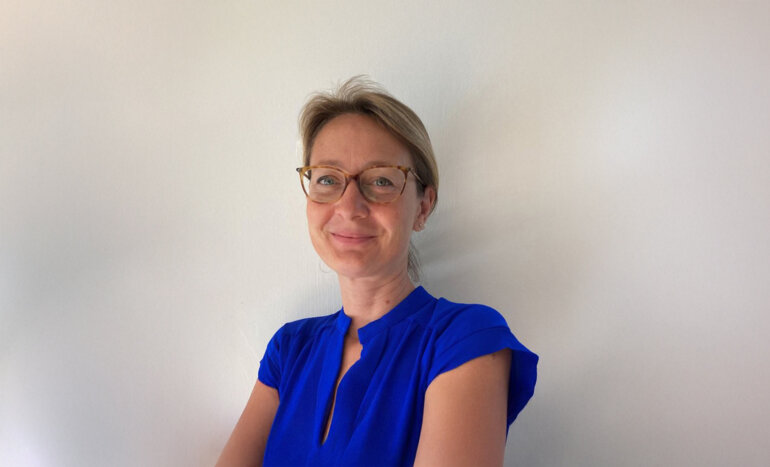Prof. Lisa Licitra: “Truly pursuing precision medicine means pushing the boundaries of patient selection using molecular biology and artificial intelligence on all big data, not just molecular information”
At ESMO Congress 2021, Prof. Lisa Licitra from the Istituto Nazionale Tumori, Milan, and the University of Milan, Italy, recipient of the ESMO Award for her outstanding contribution to advancing the understanding and treatment of head and neck cancer, and for motivating and mentoring medical oncologists worldwide, discusses her inspirations and explains how integration of different technologies is key to advancing research in today’s era of big data.
How has your translational research shaped the field of head and neck cancer during your career?
My initial research focus was the tumour suppressor protein, p53, and with my group, we demonstrated that patients with head and neck cancer harbouring wild-type p53 were more sensitive to cisplatin. This was a key finding, as even today in 2021, cisplatin continues to be the most important agent for the management of head and neck cancer. Having firstly focused on p53 in my research, it became evident over time that a single-gene approach must be substituted by an omic-based analysis – after all, a single gene can only do so much on its own and in the body, its interactions with other genes, proteins and molecules provide much more information on the role of p53 in disease. This involves using big data, artificial intelligence, and so on. However, this is more difficult than merely focusing on a single ‘suspect’ – at least for an individual medical oncologist – which necessitates the need to collaborate with others. This draws on expertise in a range of techniques, including molecular biology, and in recent years in my own research work, radiomics. I find it fascinating to examine potential correlations between medical imaging and molecular biology.
What advances do you predict in the next few years in the management of head and neck cancer?
If I had to place a bet on any advance making a big impact in head and neck cancer, my money would be on integration. This goes beyond the ‘conventional’ notion of multidisciplinary integration and extends from molecular biology – at the core – to epidemiology, artificial intelligence, distance networking and so on. Of course, integrating all of these is a formidable task, and likely requires a dedicated person to manage all aspects of the research. In my opinion, a strategic vision is crucial, and integration has always been my strategy.
What has been the greatest achievement in your career so far?
Without doubt, my biggest professional achievement has been to become Chair of the Head and Neck Cancer Unit at the Istituto Nazionale Tumori in Milan. In terms of research, I was thrilled when we discovered the very first response to anti-androgens by patients with rare salivary gland cancers harbouring androgen receptor-positive tumours. As medical oncologists, we study drugs whether they be new, or new uses for older agents, as is the case here. Matching disease characteristics to a targeted agent, such as hormonal therapy, is so rewarding. In fact, a study is ongoing now to explore this further.
How rewarding has been your role in educational programmes?
One of the most exciting aspects of teaching is the opportunity to mentor an individual young medical oncologist, or encourage an individual young student to become part of the medical oncology community. Students or those just starting out in their medical oncology careers deserve our attention and our commitment to foster the medical oncologists of the future. This is true not only in our local medical communities, but also the global medical community. I have found distance mentoring to be highly rewarding and, in some cases, goes some way to address the discrepancies in opportunities for the young in many regions. Undoubtedly, this has a positive impact on the care of patients in those regions.
Where will you direct your future research efforts?
Precision oncology is the goal today, but all too often it remains a slogan, if not a marketing message. Truly pursuing precision medicine means pushing the boundaries of patient selection using molecular biology and artificial intelligence on all big data, not just molecular information. There are a lot of data available, but we just need to find a way to exploit them. This is a challenge in any field, but even more so in a group of rare cancers, such as those that affect the head and neck. However, as a medical oncologist who is always enthusiastic about embracing other disciplines, I am interested in all technologies available today. In this regard, I am Scientific Director of the Centro Nazionale di Adroterapia Oncologica in Pavia, Italy – the only centre in the country that uses hadron therapy with both protons and carbon ions to treat tumours. Integrating new radiation therapy techniques with more traditional methods is a challenge, but one I believe that is worth devoting a medical oncologist’s efforts.
Licitra L F. ESMO 2021 Award Lecture. ESMO Congress 2021
A medical oncologist vis-à-vis a disease, 17.09.2021, h. 12:45 – 13:15, Channel 1







